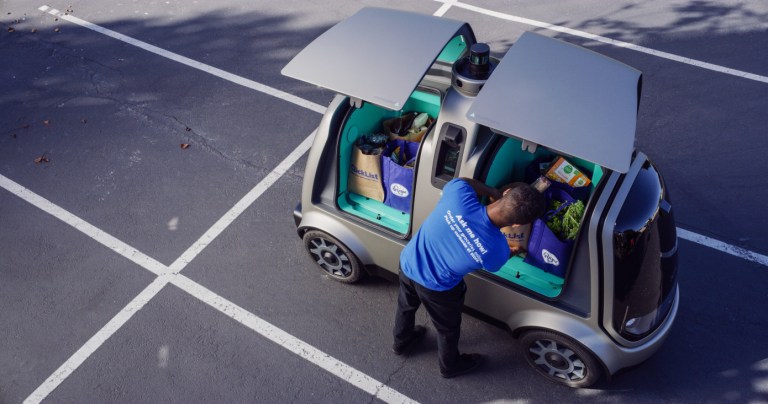Kroger Embraces Self-Driving Delivery Tech

According to reports, Kroger, in partnership with self-driving car startup Nuro, is ready to take the next step in grocery delivery, by putting an autonomous vehicle on the road to get the job done in Scottsdale, Arizona. The move comes a few months after the two firms announced they would be working collaboratively to launch same-day delivery.
A single Fry’s Food and Drug will be the focus of the Scottsdale test. Customers will be given the option of placing a same-day or next-day order via the mobile app. There is no minimum order size, but all orders will come with a $5.95 flat fee.
“We’re proud to contribute and turn our vision for local commerce into a real, accessible service that residents of Scottsdale can use immediately,” Nuro CEO Dave Ferguson said in a statement. “Our goal is to save people time, while operating safely and learning how we can further improve the experience.”
Nuro’s self-driving tech is designed around last-mile delivery for local goods and services, like grocery. Also included in the list of potential delivery targets are dry clearing, items left at a friend’s house or virtually anything that can be moved from point A to point B within the city limits that can fit into a Nuro vehicle. Nuro has two compartments that can fit up to six grocery bags each.
For the Scottsdale test, Nuro will use Toyota Prius cars ahead of introducing its custom self-driving vehicles. The firm explained that the principal goal of this project is education, and that the Prius self-driving fleet will help to accelerate those learnings.
“The Priuses share many software and hardware systems with the R1 custom vehicle, so while we complete final certification and testing of the R1, the Prius will begin delivering groceries and help us improve the overall service and customer experience,” the spokesperson said.
Nuro’s CEO Craig Ferguson had previously noted that grocery is a favored area for the firm, and that working with Kroger is a particularly exciting opportunity.
“With the pilot, we’re excited about getting more experience interacting with real customers and understanding exactly what they want,” said Ferguson. “The things they love about it, the things they don’t love as much. As an organization for us, it’s also very valuable for us to have to exercise our operational muscle.”